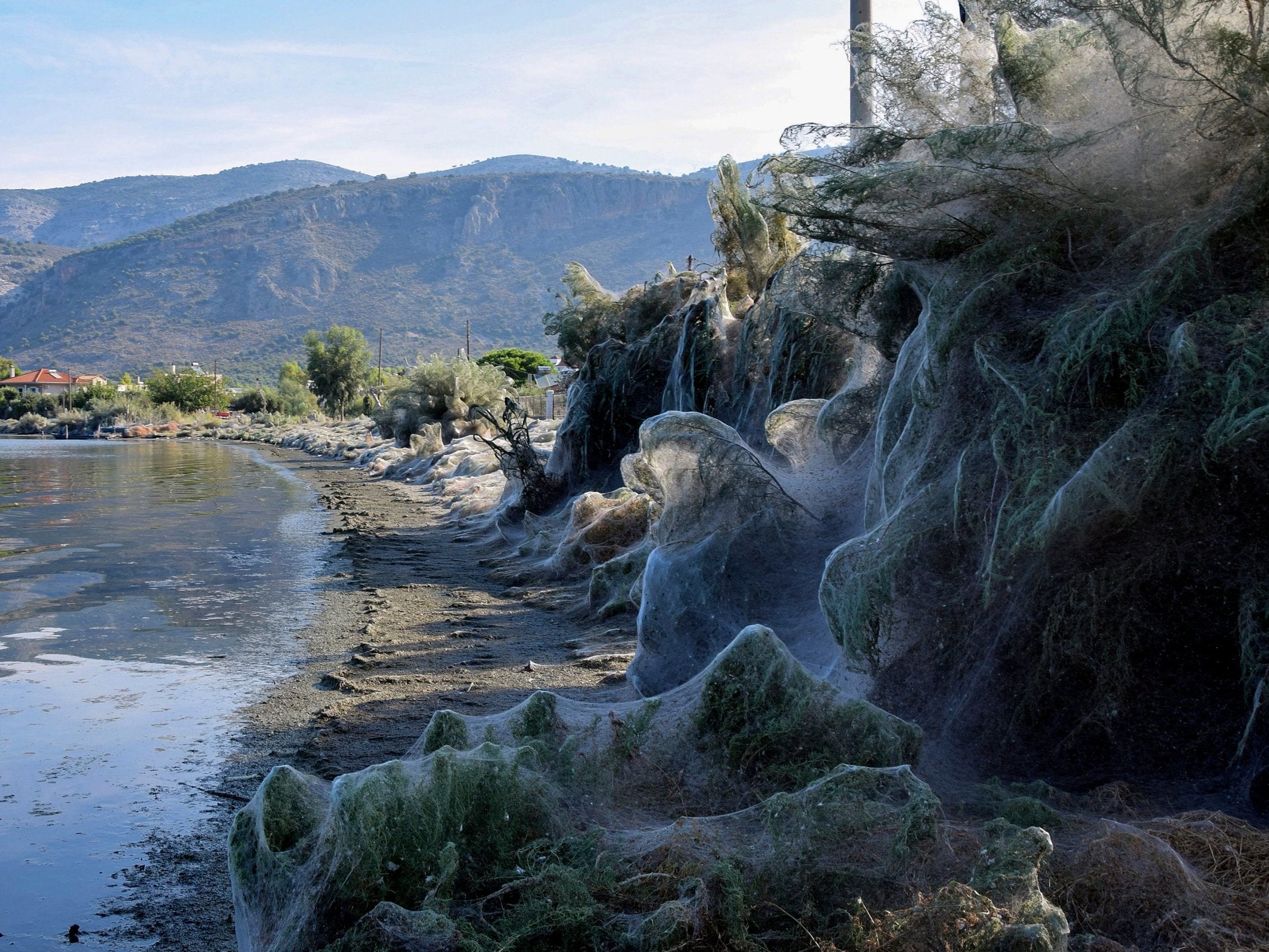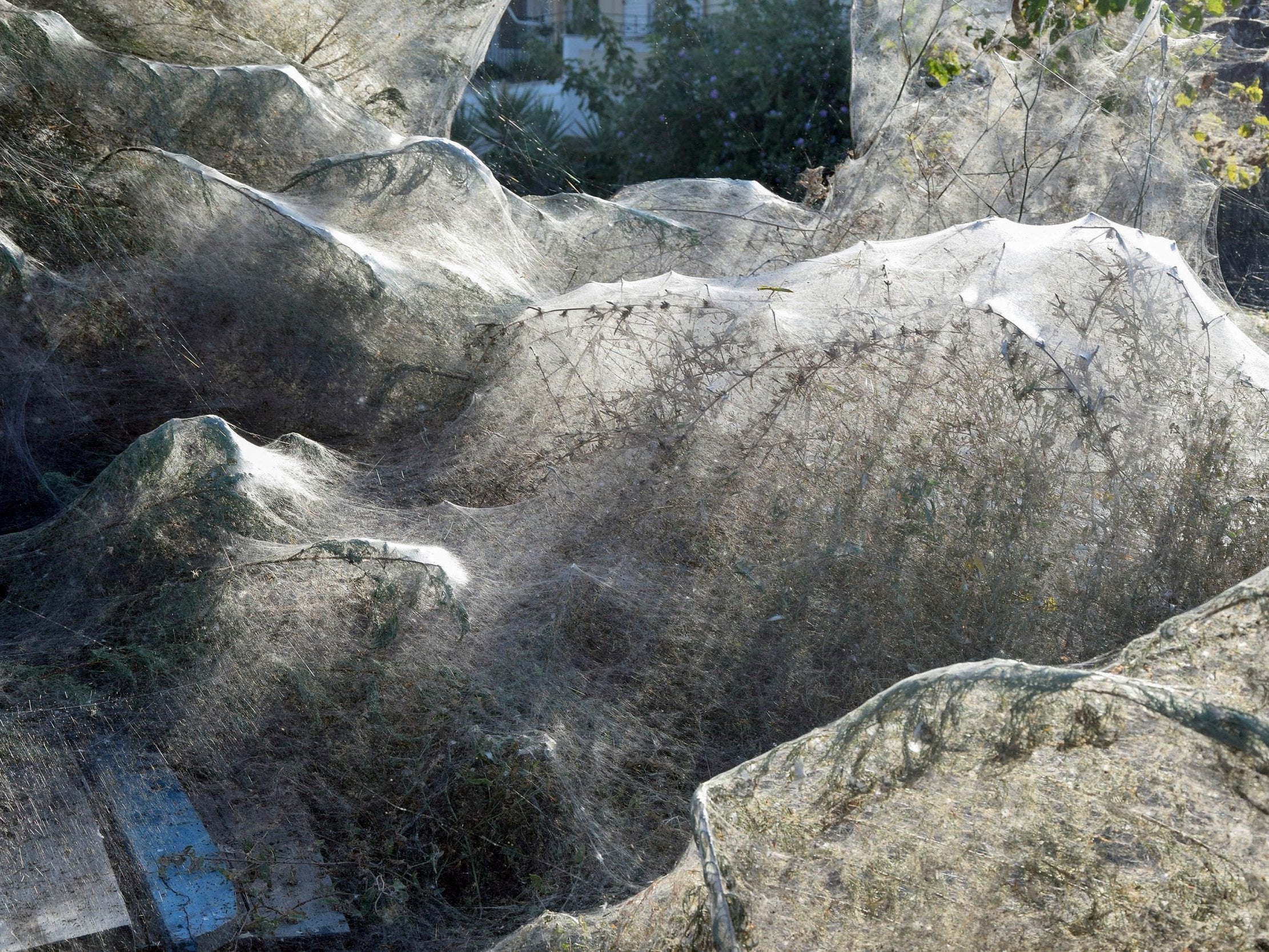Vast spider web stretches 1,000 feet across lagoon in Greece
'The spiders will have their party and will soon die,' says biology professor

Your support helps us to tell the story
From reproductive rights to climate change to Big Tech, The Independent is on the ground when the story is developing. Whether it's investigating the financials of Elon Musk's pro-Trump PAC or producing our latest documentary, 'The A Word', which shines a light on the American women fighting for reproductive rights, we know how important it is to parse out the facts from the messaging.
At such a critical moment in US history, we need reporters on the ground. Your donation allows us to keep sending journalists to speak to both sides of the story.
The Independent is trusted by Americans across the entire political spectrum. And unlike many other quality news outlets, we choose not to lock Americans out of our reporting and analysis with paywalls. We believe quality journalism should be available to everyone, paid for by those who can afford it.
Your support makes all the difference.High temperatures in Greece have led to the emergence of an incredible 1,000-foot spider web covering the whole eastern side of a lagoon in Aitoloko.
Huge webs are spun by Tetragnatha spiders during mating season each year, but scientists said the warm and humid weather had led to an unusually large “spider party” this September.
A rise in the mosquito population has also boosted the number of spiders looking to feed on the insects while weaving their nests for mating.
The resulting cobwebs have completely smothered plants and palm trees along the shoreline in the small Greek town.
“It’s as if the spiders are taking advantage of these conditions and are having a kind of a party,” Maria Chatzaki, professor of molecular biology and genetics at Democritus University of Thrace told the Newsit.gr website.
“They mate, they reproduce and provide a whole new generation,” she added. “These spiders are not dangerous for humans and will not cause any damage to the area’s flora.
“The spiders will have their party and will soon die.”

Giannis Giannakopoulos shared photos of the “strange and unprecedented” spectacle at Aitoloko on his Facebook page.
The photographer said the vast spider veil had covered vegetation along a 300m stretch of beach.
“It is probably a reaction of nature to balance the system by limiting mosquitoes,” wrote Mr Giannakopoulos.
Subscribe to Independent Premium to bookmark this article
Want to bookmark your favourite articles and stories to read or reference later? Start your Independent Premium subscription today.
Join our commenting forum
Join thought-provoking conversations, follow other Independent readers and see their replies
Comments